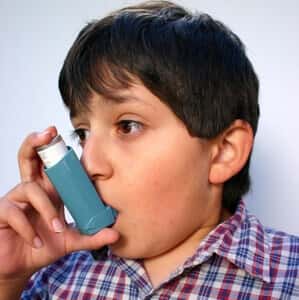
Prenatal exposure to bisphenol A (BPA) seems to put children at greater risk of breathing difficulty later, according to a study published in JAMA Pediatrics. BPA is found in the lining of cans for food and beverages and is a component in many rigid plastic products. It is also found in cash register receipts.
The scientists studied 400 pregnant women and their infants. Mothers with the highest urinary concentrations of BPA gave birth to kids who were more likely than other youngsters to have persistent wheezing by their fourth birthday.
The findings are somewhat inconclusive because the researchers did not find correlations between BPA in the children’s own urine and their breathing function. For now, the investigators urge pregnant women to limit BPA exposure as much as possible until more is known about the risks.
[JAMA Pediatrics, online, Oct. 6, 2014]
This research puts an added burden on pregnant women to focus on fresh rather than canned foods and avoid beverages in cans whenever possible. But despite the inconvenience, these are useful steps for an expectant mother to take. BPA is considered an endocrine disruptor that could alter a baby’s hormone balance.

